Climate Change in Mass.
An ongoing series of stories reported by WBUR examining the effects of climate change in Massachusetts. This collection first began with a series published in 2017.

Some like it hot: Warmer winters mean more rats in Boston
Climate change, especially warming winters, is linked to rising rat populations in cities, according to a new study. It found “significant” increases in rat numbers in places including Washington D.C.,...

While earth warmed, cold weather killed more Americans
Deaths linked to cold shot up dramatically in recent years even as the U.S. set summer heat records and temperatures increased, on average, year-round. The cause of death was often...

Harvard, MIT and MGB-led group helps build major solar and wind farms
Boston-area universities, hospital systems and nonprofits are using their combined purchasing power to help build and run a solar farm in Texas and a wind farm in North Dakota. They...

‘Hope I’m going to live that long’: Land conservation program leaves applicants in limbo
In Massachusetts, preserving more forests, fields and wetlands is a critical way the state plans to slow climate change. But a popular land conservation program leaves many property owners in...

Your inhaler saves lives, but its puffs hurt the planet
In an emergency, an inhaler can save a life. But the gas it releases contributes to global warming. Each of the most commonly prescribed inhalers has about the same climate...
Advertisement
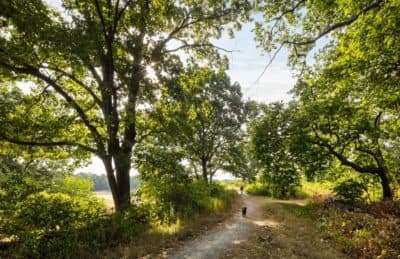
A new Boston law protects trees on public land but not private
Boston has its first tree ordinance. These rules govern when trees can be trimmed or removed from city-owned parks, the land around schools, libraries and public housing. The ordinance does...
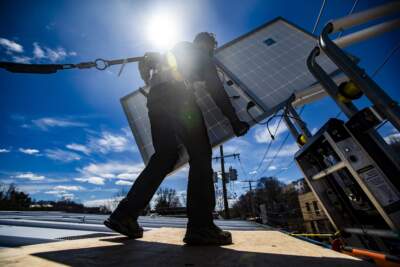
Mass. can expand solar without chopping so much forest, report says
A new analysis from Harvard Forest and Mass Audubon argues that Massachusetts could meet its ambitious goals for solar power while preserving forests and farmland.
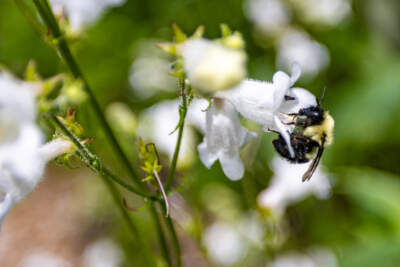
Want to help local pollinators? Here are 15 tips
Pollinator insects are declining due to habitat loss, climate change and pesticide use. Pollinator gardens can help support beneficial insects in New England.

Don’t call it vegan: What hospitals are learning about nudging people to eat greener
What entices someone to eat less meat? Hospitals are tackling this question as they work to reduce greenhouse gas emissions and improve patients' health. Here's one tip in play at...
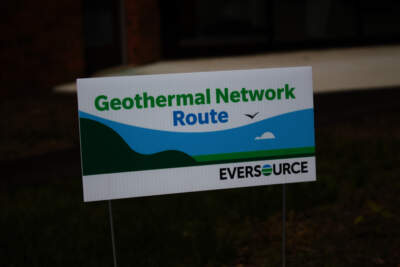
The country’s first gas utility-run networked geothermal heating and cooling system breaks ground in Mass.
With this pilot project, environmentalists hope Eversource can model a new business plan that provides more climate-friendly and affordable home heating and cooling for customers.

Gas vs. electric stoves: Breaking down some burning health and environment questions
Some Americans are considering buying electric or induction stoves as concerns grow about how gas stoves may affect our health and planet.

'Repair Cafes' in Mass. build community by restoring busted home goods once destined for landfills
Repair Cafes draw together volunteers ready to fix household goods for free and their neighbors, who bring the goods they don't want to toss. There are more than 2,600 worldwide,...
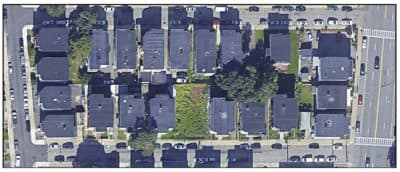
What's the quickest way to cool off a block of triple-deckers? Research says: paint the roofs white
Boston's hottest city blocks can see summer temperatures up to 10-12 degrees Fahrenheit warmer than other parts of the city. Painting flat, black roofs white could significantly cool the area.
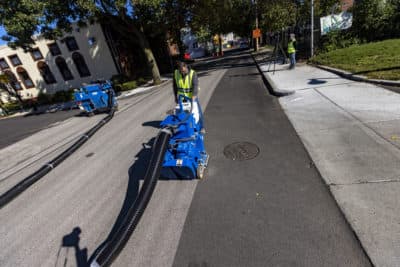
How pavement can help cool overheated cities, even in chilly Mass.
More communities, even those in historically colder states, must start reducing pavement or making it more reflective, experts say. These strategies will help slow global warming and cool cities. One...
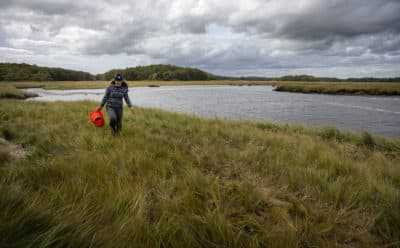
How a little mussel could help save a Merrimack River salt marsh
The salt marsh at Joppa Flats in Newburyport is eroding. A MassAudubon pilot project is testing whether ribbed mussels could help stabilize the marsh as part of a living shoreline.
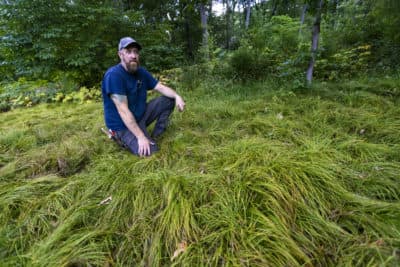
8 easy ways to make your New England lawn more eco-friendly
Lawns may seem like a trivial place to focus your eco-energy, but they cover about 40 million acres of land in the the United States. Changing them up, even a...

Beyond sunburns: How hot weather can hurt you
There's a heat wave in New England, and with the hot weather comes the usual warnings about heat-related health issues. But what exactly can the heat do to you? WBUR's...

10 ways to eat more sustainably in New England
The simplest thing you can do: Eat less beef.
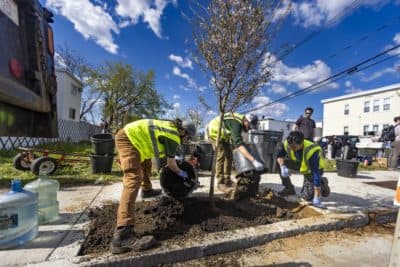
In Chelsea, cooling an urban heat island one block at a time
An intensive effort is underway to lower temperatures on one of the hottest blocks in Massachusetts. The Cool Block pilot includes 47 new trees. Dark pavement will become gray or...
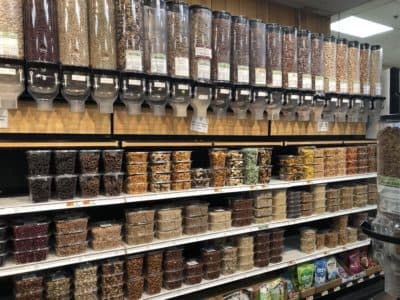
It's hard to avoid plastic while grocery shopping — even for a week
As part of WBUR’s new newsletter, “Cooked,” my challenge was to purchase a week’s worth of food and leave the store without any plastic in my bag. That means no...